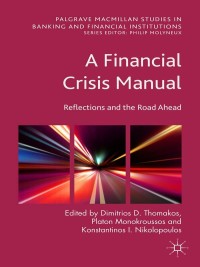Question
BACKGROUND INFO: Gianna Peters is an investment analyst who focuses on dividend-paying stocks. Peter uses a discounted cash flow (DCF) approach to stock selection. She
BACKGROUND INFO:
Gianna Peters is an investment analyst who focuses on dividend-paying stocks. Peter uses a discounted cash flow (DCF) approach to stock selection. She is getting with her staff to evaluate portfolio holdings based on a bottom-up screening of stocks listed in the United States and Canada. Peters and her staff begin reviewing the characteristics of the following portfolio candidates.
Company ABC
A Canadian company in the customer staples sector with a required rate of return of 7.35%. Recent media reports suggest that ABC might be a takeover candidate. Peters and her team estimate that if the incumbent Canadian prime minister's party retains its power, the company's current annual dividend of C$0.65 per share will grow 12% a year for the next four years and the stabilize to 3.5% growth rate a year indefinitely. However, if a new government takes office in Canada, then the team estimates that ABC will likely not experience the elevated 12% short-run growth because of new regulatory and tax changes, and instead will grow by 3.5 indefinitely.
Company XYZ
A mid sized US company in the utilities sector with a required rate of return of 10%. Peters and her team believe that because of a recent restructuring, the company is unlikely to pay dividends for the next three years. However, the team expects XYZ to pay an annual dividend of US $1.72 per share beginning four years from now. Thereafter, the dividend is expected to grow indefinitely at 4% even though the current price implies a growth rate of 6% during this same period.
Company JZY
A large US company in the telecom sector with a required rate of return of 8%. The stock is currently trading at US$36.76 per share with an implied earnings growth rate of 3.5%. Peters believes that because JZY is mature and has a stable capital structure, the company will grow at its sustainable growth rate. Over the past 10 years, the company's return on equity (ROE) has averaged 8.17% and its payout ratio has averaged 40%. Recently, the company paid an annual dividend of US$0.84 per share.
Peters asks the team to examine the growth opportunities of three Canadian stocks currently held in the portfolio. These stocks are listed below Exhibit 1:
| STOCK | REQUIRED RATE OF RETURN | NEXT YRS FORECASTED EPS (C$) | CURRENTPRICEPERSHARE(C$) |
| ABTD | 10.5% | 7.30 | 80.00 |
| BKKQ | 8% | 2.12 | 39.00 |
| CPMN | 12% | 1.90 | 27.39 |
QUESTIONS:
1. Based on Exhibit 1, the stock with the largest present value of growth opportunities (PVGO) is:
A. ABTD
B. BKKQ
C. CPMN
2. Based on Exhibit 1, the growth component of the leading P/E is largest for:
A. ABTD
B. BKKQ
C. CPMN
Step by Step Solution
There are 3 Steps involved in it
Step: 1

Get Instant Access to Expert-Tailored Solutions
See step-by-step solutions with expert insights and AI powered tools for academic success
Step: 2

Step: 3

Ace Your Homework with AI
Get the answers you need in no time with our AI-driven, step-by-step assistance
Get Started


